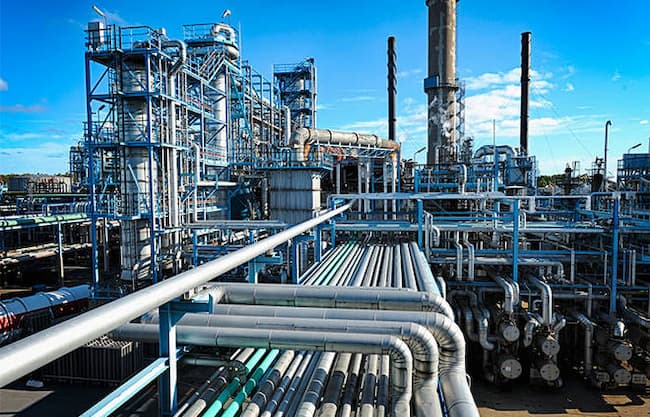A new report by SBM Intelligence has revealed that three crude oil refineries in Nigeria have not produced a single drop of petrol since July 2019 and have incurred over N185 billion losses.
The report entitled ‘Nigeria’s moribund refineries’ stated that the Nigerian National Petroleum Corporation (NNPC) incurred a loss of N473.3bn in operating moribund Warri, Port-Harcourt and Kaduna refineries between January 2015 and February 2021.
The geopolitical and socioeconomic research firm stressed that Nigeria’s refineries had become a costly and unproductive venture in the past six years.
“Nigeria’s refineries are becoming an increasingly expensive pastime. Between January 2015 and February 2021, the NNPC has posted a combined loss of N473.3bn while operating the three refineries: Warri, Port-Harcourt and Kaduna,” the report stated.
“In that time, only 6.73 per cent of their capacity has been utilised on average. In fact, none of the three refineries has produced a drop of refined petrol since July 2019, racking up over N185bn in losses,” it added.
In spite of the increasing loss, the report said that the Nigerian government had been bent on wasting money on the facilities by channeling more funds to repair them.
READ ALSO: BREAKING: FEC Okays Policy For Tollgates Nationwide
The report stated, “And yet, there’s no sign of the expenditure slowing down. In March, the Federal Executive Council approved the sum of $1.5bn for the rehabilitation of the Port-Harcourt refinery.
“The repair, which will be executed by Tecnimont SPA, an Italian company, will be done in three phases of 18, 24 and 44 months. Last week, a further $1.48bn was approved for the Kaduna and Warri refineries, this time to Saipem SPA, another Italian company.”
It stated, “Nigeria must count the cost, not only of spending scarce resources on refineries that have not reached more than 30 percent capacity in over six years but also of the income foregone from not privatising them, like has been long suggested.”













